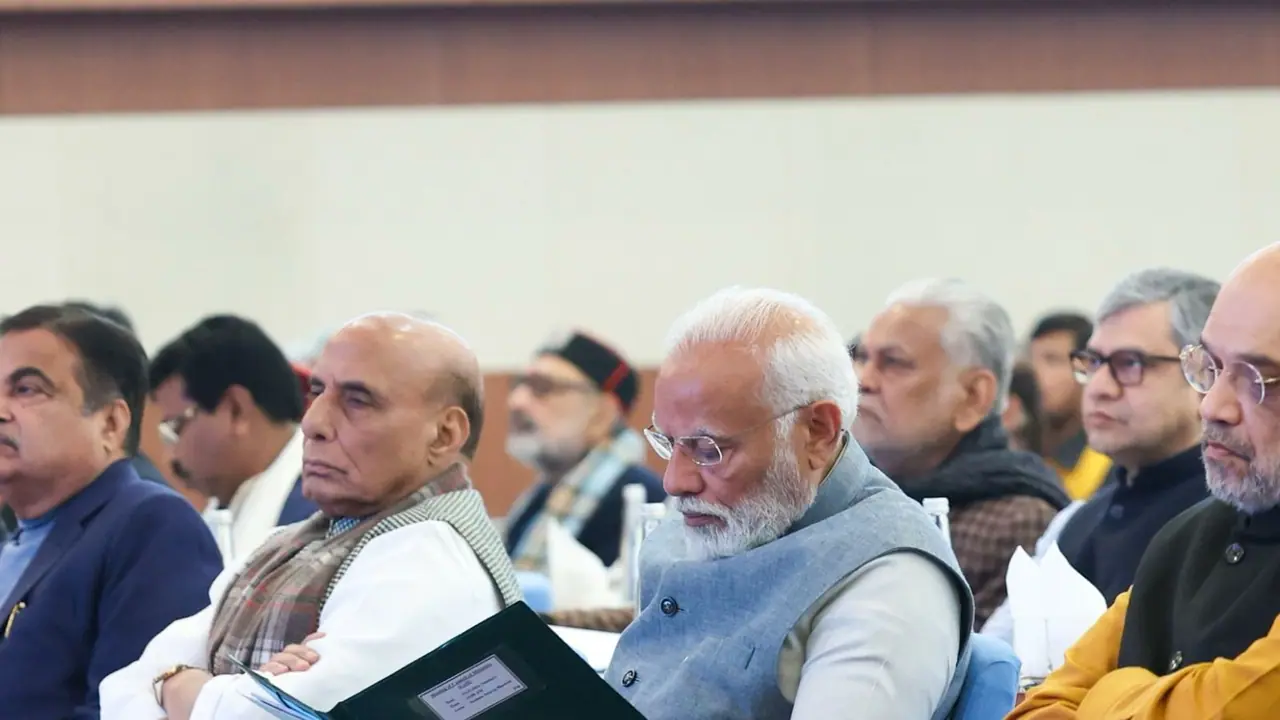Prime Minister Narendra Modi expressed dismay over revelations in a news report detailing how the Congress-led government handed over control of Katchatheevu island to Sri Lanka in 1974. The report highlighted the decision by Prime Minister Indira Gandhi's government and its implications
Prime Minister Narendra Modi on Sunday termed as eye-opening and startling, a news report on how the Congress-led government handed over Katchatheevu to Si Lanka in 1974.

"Eye-opening and startling! New facts reveal how Congress callously gave away #Katchatheevu. This has angered every Indian and reaffirmed in people’s minds- we can’t ever trust Congress! Weakening India’s unity, integrity and interests has been Congress’ way of working for 75 years and counting," PM Modi said on social media platform X.
The report in the Times of India detailed the decision by the government of Prime Minister Indira Gandhi in 1974 to hand over control of the strategically positioned Katchatheevu island to Sri Lanka. The issue has resurfaced as a contentious topic ahead of the Lok Sabha campaign, particularly in Tamil Nadu.
Revelations stemming from official documents and parliamentary records have shed new light on India's oscillating stance and eventual relinquishment of sovereignty over the 1.9 square kilometre island in the Palk Strait to its smaller neighbour, Sri Lanka.
These revelations, obtained through a meticulous process of scrutiny initiated by TN BJP chief K Annamalai via a Right to Information (RTI) application, underscore Sri Lanka's persistent efforts to assert its claim over Katchatheevu, a landmass situated approximately 20 kilometres from the Indian coastline. Despite India's historical and legal contestations over several decades, Sri Lanka, formerly known as Ceylon, adamantly pressed its sovereignty claim shortly after gaining independence.
The documentary evidence paints a nuanced picture of India's internal deliberations regarding the island's ownership. Notably, a minute penned by Prime Minister Jawaharlal Nehru on May 10, 1961, revealed a surprising willingness to relinquish India's claims to Katchatheevu, deeming it inconsequential in the broader scheme of national interests. This sentiment was echoed in legal opinions of the era, which highlighted India's historical rights over the island, rooted in the zamindari rights granted by the East India Company to the Raja of Ramnad.
However, despite the existence of conflicting opinions and historical complexities, India officially ceded its claim to Katchatheevu in 1974. The Ministry of External Affairs, grappling with the intricate legal nuances surrounding the issue, ultimately acquiesced to Sri Lanka's unwavering claims, thus marking a significant diplomatic concession.
The resurgence of the Katchatheevu issue has reignited debates across political spectrums, with opposition parties lambasting the government's perceived reluctance to confront Sri Lanka's assertiveness over the island. Heightened suspicion has emerged regarding potential clandestine negotiations between Prime Minister Indira Gandhi and her Ceylonese counterpart, Dudley Senanayake, during the latter's visit in 1968. Opposition voices have accused the government of failing to uphold India's territorial integrity in the face of Sri Lanka's resolute territorial claims.
The decision to relinquish India's claim was formally conveyed to Tamil Nadu Chief Minister M Karunanidhi in June 1974 by Foreign Secretary Kewal Singh. During this pivotal meeting, Singh underscored India's historical rights over Katchatheevu, citing the absence of concrete documentary evidence proving Sri Lanka's legitimate title to the island. Despite these assertions, Singh emphasized Sri Lanka's unwavering stance on the matter, backed by historical records showcasing the island's purported inclusion within the kingdom of Jaffnapatnam, as well as Dutch and British cartographic representations.
